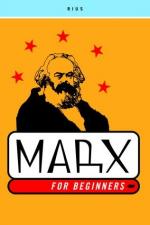
|
| Name: _________________________ | Period: ___________________ |
This test consists of 15 multiple choice questions and 5 short answer questions.
Multiple Choice Questions
1. Increasing the efficiency of the work and the worker's productive output does what?
(a) Puts money in the hands of both the capitalist and the worker.
(b) Puts money in the capitalist's wallet and not the hands of the worker.
(c) Causes more stress on the worker.
(d) Puts money in the hands of the workers.
2. One Marxist theorist argued that by working for a capitalist and producing a commodity, the worker is increasing what?
(a) His own usefulness.
(b) His own alienation.
(c) His own understanding of the business world.
(d) His own education.
3. Marx and Engels used dialectics. What are dialectics?
(a) The language of philosophers.
(b) Explanations for one's beliefs.
(c) Different versions of the same language.
(d) Argument that brings out the flaws in another's reasoning.
4. What did Hegel fail to see that still existed in society?
(a) The wealthy.
(b) The oppression and exploitation.
(c) The poor.
(d) The uneducated.
5. With this philosophy of seeing everything as mechanical, things are immutable or _____________________.
(a) Rarely changing.
(b) Usually changing.
(c) Unchanging.
(d) Changing.
6. The capitalist buys what, along with the supplies, to make his product?
(a) The labor.
(b) The building to house the supplies.
(c) Supporters.
(d) Othe wealthy capitalists.
7. How did philosophy start?
(a) As a criticism of supernatural or religious beliefs.
(b) Out of fear of the unknown.
(c) As a study of the birth of man.
(d) Out of interest in making discoveries about our world.
8. In Europe, who was one individual who did advocate for rebellion against the church and its dictatorship?
(a) Newton.
(b) Van Gogh.
(c) Da Vinci.
(d) Machiavelli.
9. Rius examines the roots of Marxism. At what does he begin by looking?
(a) Neanderthals.
(b) The Middle Ages.
(c) The Book of Genesis.
(d) Early man.
10. What can make a difference in the workers' situation?
(a) Unions.
(b) Better pay.
(c) Shorter work hours.
(d) Insurance.
11. What increases alienation?
(a) Private ownership.
(b) The lack of ownership.
(c) Fear.
(d) The lack of support groups.
12. When does alienation occur?
(a) An exploited laborer earns a wage, but the object he makes belongs to someone else, and the worker becomes a machine.
(b) The making of a company into a machine.
(c) When one is left alone in a strange land.
(d) When one becomes isolated.
13. Capitalism will need to be replaced by what?
(a) Socialism.
(b) Democracy.
(c) A dictatorship.
(d) A form of government that will protect and value the worker.
14. Why would Hegel believe that a worker should not worry about the material?
(a) Worrying does not solve problems.
(b) Only the owner should worry.
(c) The worker does not have the power to change anything.
(d) Only the spiritual matters.
15. Philosophy sees two kinds of men. What are these kinds of men?
(a) Realists or dreamers.
(b) Conservative and Liberal.
(c) Christians or pagans.
(d) Materialist and idealist.
Short Answer Questions
1. To what are Marx's theories leading him?
2. The price of a commodity or product is created through what?
3. The Communist Manifesto was a call for all workers to do what?
4. Seeing the world as mechanical is also known as what?
5. Marx is a materialist and his work attempts to bring more consistency to _______________.
|
This section contains 522 words (approx. 2 pages at 300 words per page) |

|




